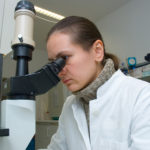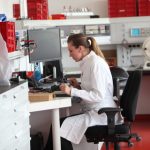
Study looks at ways to prevent suicide in young Welsh people
Reducing adverse childhood experiences, preventing alcohol and substance misuse, and improving education and training opportunities are some key ways to help prevent suicide in Welsh children and young people. A new review published by Public Health Wales and Swansea University, examines the deaths of all children and young people in Wales who died by suicide … Continue reading Study looks at ways to prevent suicide in young Welsh people

Patients to help trial new bowel cancer test
Hundreds of patients are being asked to help trial a test that could detect or rule out bowel cancer without the need for hospital investigations. The test could one day mean that people showing possible bowel cancer symptoms would no longer require a colonoscopy or a CT scan. Swansea Bay University Health Board says this … Continue reading Patients to help trial new bowel cancer test

Girls more likely than boys to be admitted to hospital after self-harming
A study, published in the Archives of Disease in Childhood, reveals a gender disparity that is particularly evident among ten to fifteen year olds who have self-harmed. Most analyses of self-harm among young people have been restricted to hospital admissions or primary care data. But Swansea University say this research, led by Professor Ann John, … Continue reading Girls more likely than boys to be admitted to hospital after self-harming

Researcher gets £35,000 funding to improve lung cancer detection
Dr Charles Brilliant, a researcher based at Swansea University, has received £35,000 from Innovate UK’s ICURe Awards. Business News Wales reports Charles Brilliant will use the funding to further his research using infrared light to determine the molecular structure of sputum to detect lung cancer. It means that patients could get an initial diagnosis in … Continue reading Researcher gets £35,000 funding to improve lung cancer detection

Welsh scientists awarded funding for earlier bowel cancer screening
Cancer Research UK has awarded more than £500,000 to scientists in Wales to develop a new test which aims to detect bowel cancer at an early stage. ITV reports Prof Paul Dyson at Swansea University, Dr Lee Parry at Cardiff University and Dr Sunil Dolwani at Bowel Screening Wales are looking at how a strain … Continue reading Welsh scientists awarded funding for earlier bowel cancer screening

Social media isn’t causing more eating disorders in young people
There is ongoing debate about whether eating disorders are more common in modern society. Some people say, because they are exposed to and sharing images of themselves in an unprecedented way, social media is affecting young people’s body image and may have an impact on their eating. According to a large survey conducted in 2017, … Continue reading Social media isn’t causing more eating disorders in young people

Eating disorder early warning signs revealed in study
Early warning signs that someone may have an eating disorder have been revealed in a large scale data study conducted by Swansea University researchers. The results, published in the British Journal of Psychiatry by the Royal College of Psychiatrists, showed that people diagnosed with a disorder had higher rates of other conditions and of prescriptions … Continue reading Eating disorder early warning signs revealed in study

Problem gamblers more likely to think about and attempt suicide
New findings from analysis of the Adult Psychiatric Morbidity Survey (2007) show that problem gamblers are more likely than rest of the population to have thought about suicide and to have made a suicide attempt. They are also more likely to feel lonely and isolated from other people compared with non-gamblers or gamblers with no … Continue reading Problem gamblers more likely to think about and attempt suicide

Manuka honey could kill drug resistant bacteria in cystic fibrosis infections
Manuka honey could provide the key to a breakthrough treatment for cystic fibrosis following preliminary work by researchers at Swansea University. Dr Rowena Jenkins and Dr Aled Roberts have found that using Manuka honey could offer an antibiotic alternative to treat antimicrobial resistant respiratory infections, particularly deadly bacteria found in cystic fibrosis infections. Swansea University … Continue reading Manuka honey could kill drug resistant bacteria in cystic fibrosis infections

Trial of potential new treatment for type 1 diabetes
Researchers at Cardiff University and Swansea University are running a new trial to investigate whether a medicine currently used for the skin condition psoriasis could also be used to help people with type 1 diabetes produce some of their own insulin. Over three hundred thousand people in the UK have Type 1 diabetes and the … Continue reading Trial of potential new treatment for type 1 diabetes








